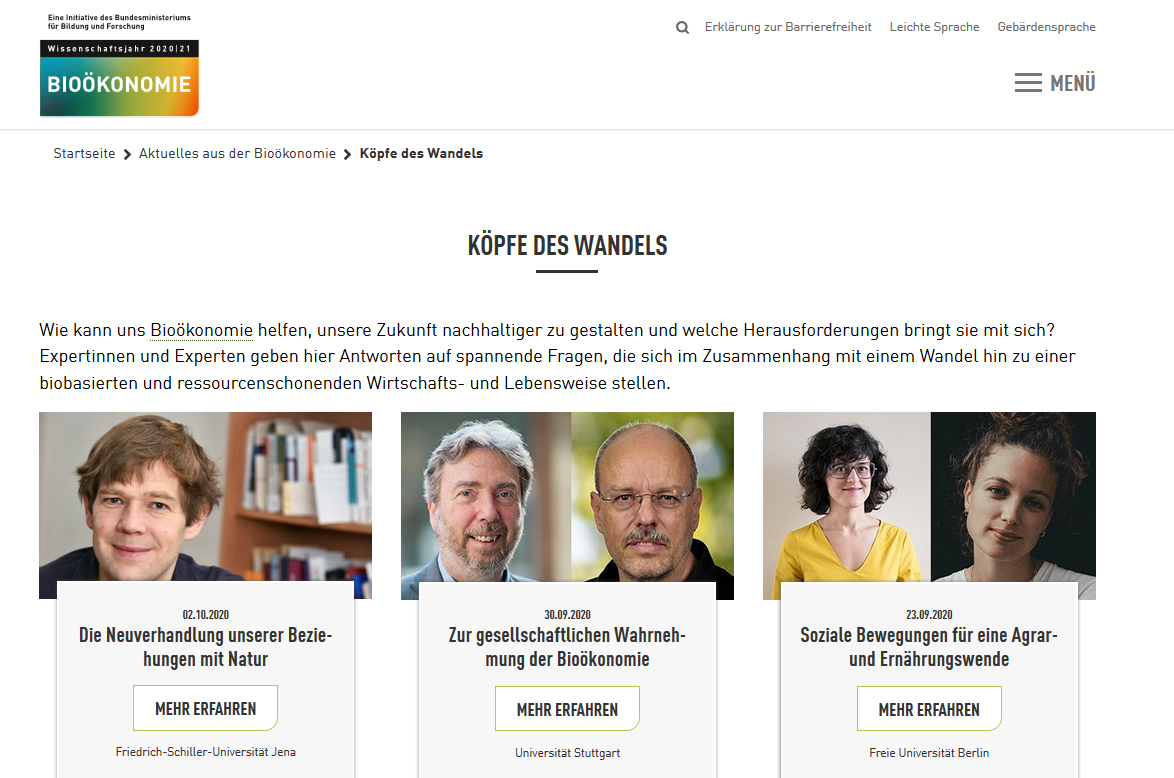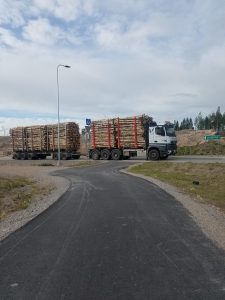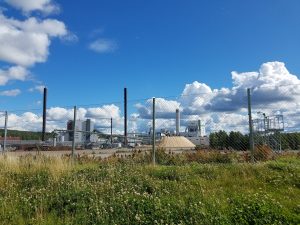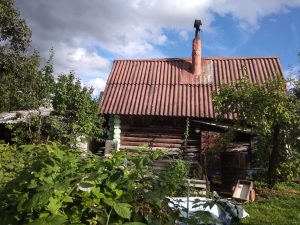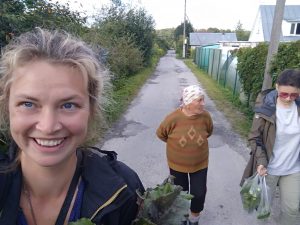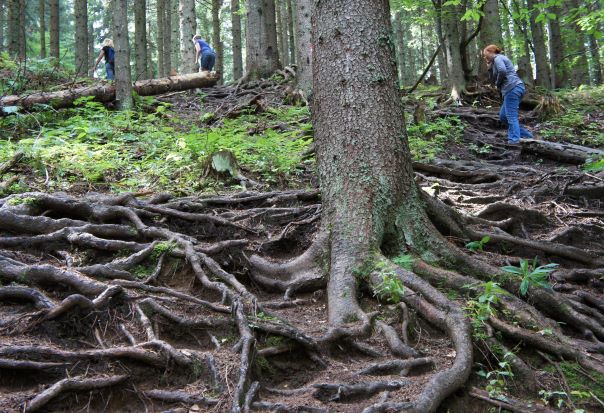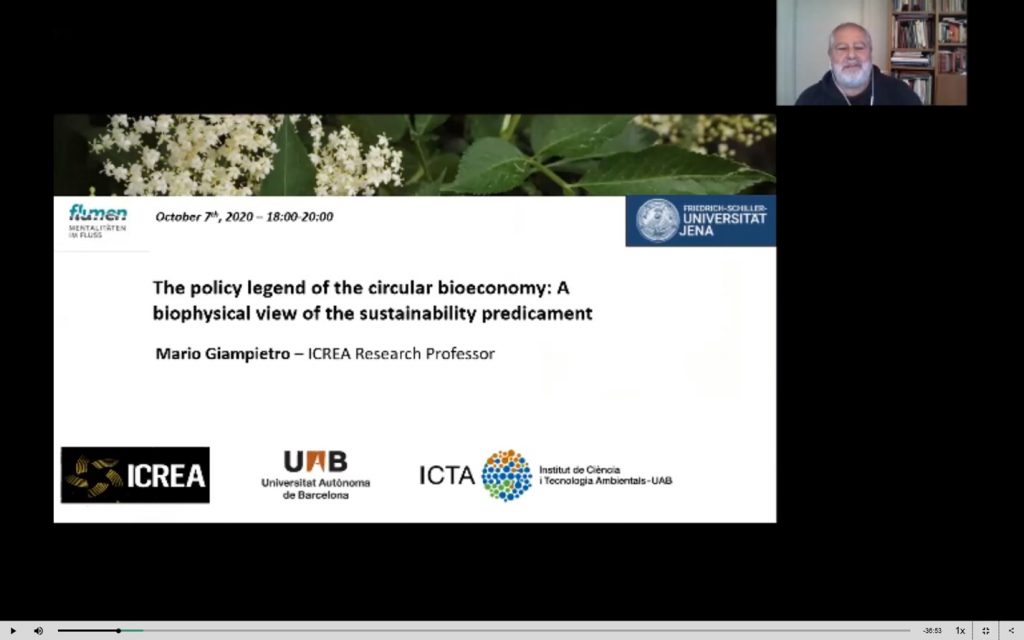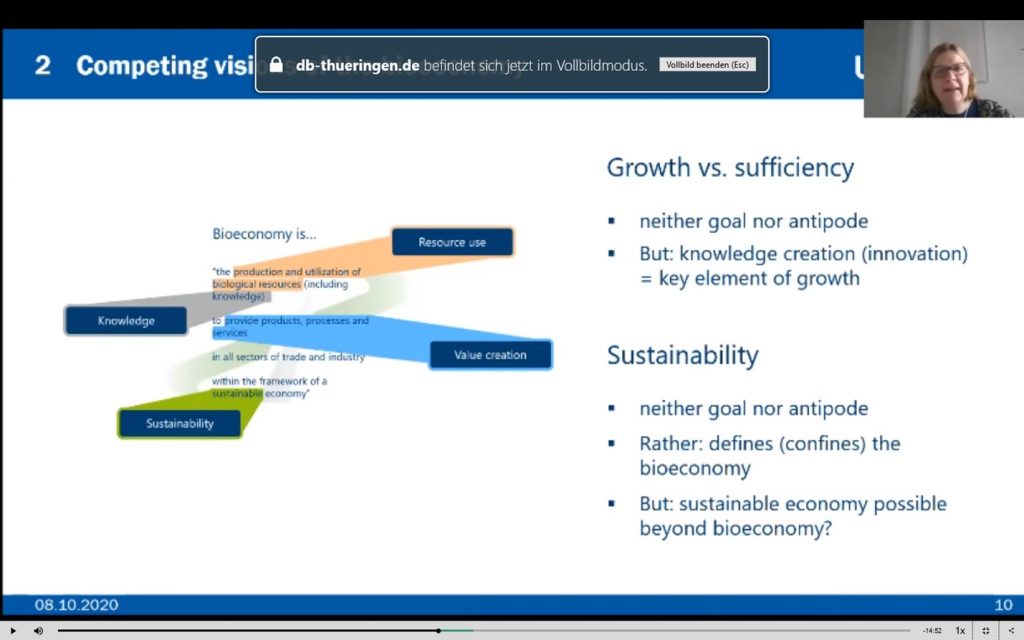Date: Wednesday, October 7, 2020 from 6:00 pm to 8:00 pm
Organiser: BMBF junior research group “Mentalities in flux: imaginaries and social structure in modern circular bio-based societies” at the Institute for Sociology (Friedrich-Schiller University, Jena, Germany)
Speaker: Mario Giampietro (Universitat Autònoma de Barcelona)
Registration (webinar with zoom): https://uni-jena-de.zoom.us/meeting/register/tJAocu-pqz8tHNO2CWBa9AO1iIl6m9p2x5B6
Circular bioeconomy, at a first glance, appears like a magic bullet for a future economic development. Especially policy makers from the EU create a vision and a promise of a circular bioeconomy that would enable sustainable development, a green economy, economic growth and social welfare altogether. This, of course, sounds great and provokes hopes of overcoming the climate crisis and scarcity of resources and, at the same time, going on with economic growth. But: is this realistic? If we think about an economy that is based on renewable biological resources coming from animals, plants and microorganisms and assume that economies should grow as they did before, we have to put the question how sustainable this would be. What are the limits of the economic use of available biological resources? An often-used argument for solving this dilemma is the development of technological solutions and the circular economy, in which waste and side-products will find their way back to economic use and by that reducing the demand on biological resources.
Is that concept scientifically solid? Are we dealing with a dangerous form of sociotechnical imaginary? What exactly does circular bioeconomy for different stakeholders mean? Are policy makers ignoring fundamental assumptions from non-economic sciences that are crucial for the feasibility of a sustainable economic development? How realistic is a sustainable development under a circular and bio-based economy? And, how would the concept of a circular bioeconomy have to change, if sustainability would serve as a rule for decisions?
Mario Giampietro from the Institute of Environmental Science and Technology at the UAB (Universitat Autònoma de Barcelona) will held a lecture and go into these questions. He will give us an insight on the (biophysical) scientific views and assumption that are connected to the concepts of circular economy, bioeconomy and the growth-paradigm. He will explain why to his opinion, the promise of the circular bioeconomy is a legend and why it could lead to unrealistic hopes and expectations, mismanaged investments and irresponsible future-programs. The audience will have the possibility to discuss various questions with Giampietro and the other participants.
The lecture is part of our workshop “It’s the (bio)economy, stupid!
The future of growth and the promise of the bioeconomy“


